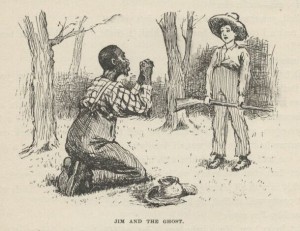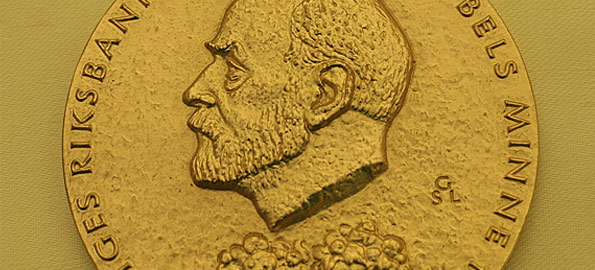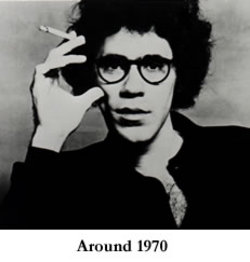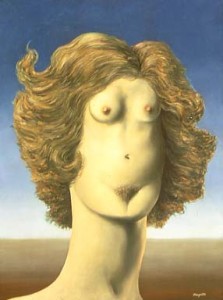‘Let’s take a nap from books’ Wednesday

A Very Brief History of the Nobel Prize in Literature

King Carl XVI Gustaf of Sweden, who gives out the Nobel Prizes. He's kind of handsome, right? Got that "silver fox" thing going on.
When the winner of the 2009 Nobel Prize in Literature is announced next month, he or she will join a club more exclusive than just about any other in the world. You know those clubs at Ivy League schools, with names like “The Scone and Pudding Society,” where it’s a bunch of white guys who dress in costumes and make up silly songs and photograph each other naked? And how, you know, the members are, against all odds, actually proud of being in it? Instead of feeling kind of dirty and ashamed? Even more exclusive than that.
One thing’s for sure: Of all the 105 women and men who have won this prestigious award, none of them will ever be forgotten. Except for most of them. After the jump, we take a look at some of the past winners, and how they changed…the very world itself. Except for the ones who didn’t. Which, like I said, is a lot of them.
Banned Books Week
 It’s finally here, and I’m ashamed to say that, of the top ten most challenged books in 2008, I have only read one (some Scary Stories book I got off the Bookmobile when I was a child which, while it maybe should not be banned, did haunt my dreams for many years with its tales of chicks whose heads fell off when they undid their scarves). But we all know books are dangerous, and can warp fragile, gelatinous minds with their subversive ideas. The thing is, by forbidding access to something, you’re only going to give it that much more power to smite the reactionary forces of good (evil). Like, I’d be upset if someone banned Going Rogue, because that thing is going to be awesome for everyone. However, if you did have the power to ban one book for all eternity though, which would you pick?
It’s finally here, and I’m ashamed to say that, of the top ten most challenged books in 2008, I have only read one (some Scary Stories book I got off the Bookmobile when I was a child which, while it maybe should not be banned, did haunt my dreams for many years with its tales of chicks whose heads fell off when they undid their scarves). But we all know books are dangerous, and can warp fragile, gelatinous minds with their subversive ideas. The thing is, by forbidding access to something, you’re only going to give it that much more power to smite the reactionary forces of good (evil). Like, I’d be upset if someone banned Going Rogue, because that thing is going to be awesome for everyone. However, if you did have the power to ban one book for all eternity though, which would you pick?
POST-APOCALYPTIC

has anyone cataloged the different kinds of apocalyptic texts. i can’t remember ever reading a critical work that didn’t use the idea of an apocalypse vaguely, as though if you just say the word everyone understands, “the ending of the world” but not in what sense “the world” is being interpreted. the greek interpretation of “apocalypse” means an “unveiling” or “revelation.” combining this with a more contemporary idea of apocalypse, wherein civilization ends by an unveiling of reliance on certain technology, it becomes easier to define. so to me then, it seems important when writing about a book that idealizes the apocalypse, to give a type to this version of it, one based on how it operates in the book. i like apocalyptic writing if it unveils my sense of order, a claim i return to later with SCORCH ATLAS. if i am remembering an octavia butler book correctly, PARABLE OF THE SOWER i think, this apocalypse involves unveiling the government of human nature. in the book, gated communities protect themselves internally from an unsteady outside world. without even really getting into it, i can see that this suggests a natural inclination for humans to make groups, to use others as technology. so in this version of the apocalypse, a technological unveiling, comes in the form of factions. a faction suggests limited power among a greater grouping of power. so what is unveiled is two interpretations of human nature in relation to power, two interpretations to be taken as one, as what happens when humans must face being alive. in facing being alive, it is unveiled that you must band together. to attack or defend. throw in the added element of there being a girl who possesses “hyperempathy” or a greater humanity for humanity, within herself, and the unveiling of the total human emotional scale is the apocalypse, the decision to govern and how to do it. the unavoidaility of it.
The 2009 Nobel Prize in Literature: Let’s Bet Cash Money on This

This award will go to someone you have never heard of, or a duck.
Next month, the winner of the 2009 Nobel Prize in Literature will be announced, and literary types have already started speculating, and even betting, on who might be this year’s winner. This is pointless, because the winner is going to be, in all likelihood, an anarcho-syndicalist playwright or pamphleteer from Moldova or something like that. It might be a duck, as long as it’s a duck that likes Gramsci but not America or television. It probably will not be anyone you have ever heard of. But you might pretend you have after he or she wins, if you, like me, are kind of a dick. The winner will definitely be alive, per Nobel rules, at the time of the nomination, though. Sorry, Updike!
One thing is for sure: the announcement will catapult the winner to worldwide reality show-level fame, and magazines will speculate about his or her sexual orientation, and nobody will be able to stop talking about the latest Nobelist for years to come. Remember when that happened with Dario Fo? And Elfriede Jelinek? Huh? Huh? Anyway, we discuss the bookmakers’ odds for what might, sadly, be the most exciting contest of the year…after the fucking jump!
Roundup

Has anyone else been checking out “The best Books of the Millenium (So Far) at The Millions? Plenty to fight about there!
Last week I posted a poem Mark Bibbins wrote with D.A. Powell. Today I have an interview that Travis Nichols conducted with D.A. Powell.
Dan Nester wrote a fascinating essay about the New York poetry scene, and his disenchantment with same. If this is a taste of his forthcoming book, How to be Inappropriate, then I’m hereby predicting great things.
At The Rumpus, Rozi Jovanovic has a long interview with Tao Lin.
Also, in case you missed it when it was new last week, Dennis Cooper posted 15 stories and poems by Joe Brainard.
On Brandi Wells’s ‘Instructional’
 HTMLGIANT reader Joseph Goosey asks in a recent email:
HTMLGIANT reader Joseph Goosey asks in a recent email:
Regarding Ms. Brandi Wells’s piece in the latest PANK, could a male have gotten away with composing a similar piece, let alone publishing it in a fine journal?
Anyhow, I asked Roxane Gay, new HTMLGIANT contributor and current Associate Editor of PANK, if she’d like to respond to Goosey’s question before I posted it for others to comment on. Here’s what she sent back via email:
I definitely think a man could have “gotten away” with writing a similar story for a couple reasons. First, we don’t read blind at PANK but our submission manager assigns each file a number and if the writer doesn’t include their name in their .doc file, we have no real way of knowing who they are as we read submissions. I’m far too lazy to open up Firefox and see who wrote what as I’m reading. There was no identifying information in Brandi’s file so Instructional could have been written by anyone. I loved the story and didn’t give a thought to the gender of its author.
If I had seen a man’s name in the file, I would have thought, “eww, perv,” or “this is creepy, I hope he never finds out where I live,” but I still would have loved and chosen the story. The writing is spectacular.
I also think it’s a bit… sexist (or something) to assume that it’s somehow safer or more acceptable for a woman to write a graphic, uncomfortable story. This is not a case where it’s different for girls.
When the Establishment is Infinitely more Avant-Garde than the Avant-Garde, is it not time to Reconsider Our Notion of the Avant-Garde?
httpv://www.youtube.com/watch?v=iOsgqG5OOlM&
This might be a good time for us to re-visit Chris Bachelder’s 2004 essay, “A Soldier Upon a Hard Campaign,” which was written about the problems of integrating satire and politics into one’s writing, without continually being upstaged by the world.
I found it poignant that Animal Face-Off was airing just as Bear v. Shark was sliding quietly out of print. It seemed to mean something, but I wasn’t sure what. I suppose I couldn’t figure out if the TV show made the book more or less urgent and necessary. Probably less, I decided. The lag time between absurdist, futuristic satire and American reality was something like two years in this case.
The essay also contains the following maxim about the nature of art which has stuck with me ever since I first read it. I was just thinking about it the other day, in fact. It goes: “Beauty without Conviction is a beer commercial; Conviction without Beauty is a pamphlet.”
So, if this was my Expository Writing class, the essay question would be something like: Using the Norton anti-virus commercial and Bachelder’s discussion of satire as our critical sources, let us work outward toward a more general discussion of the nature of the avant-garde in literature. When randomness, absurdity, and anti-narrative are the standards of the mainstream (and what is advertising if not mainstream desires and values served back to the mainstream in their purest forms?) what does the cutting edge look like? Can the avant-garde seek to invert those values by embracing “classical” values and forms such as linear storytelling in a realist mode, or should we seek to break out of the dialectic entirely? What might that breaking-out look like?
5 pages, double-spaced. Rough draft due Tuesday; final draft due a week from Tuesday. Or whatever’s on your mind right now, left in the comments here. Whichever.
